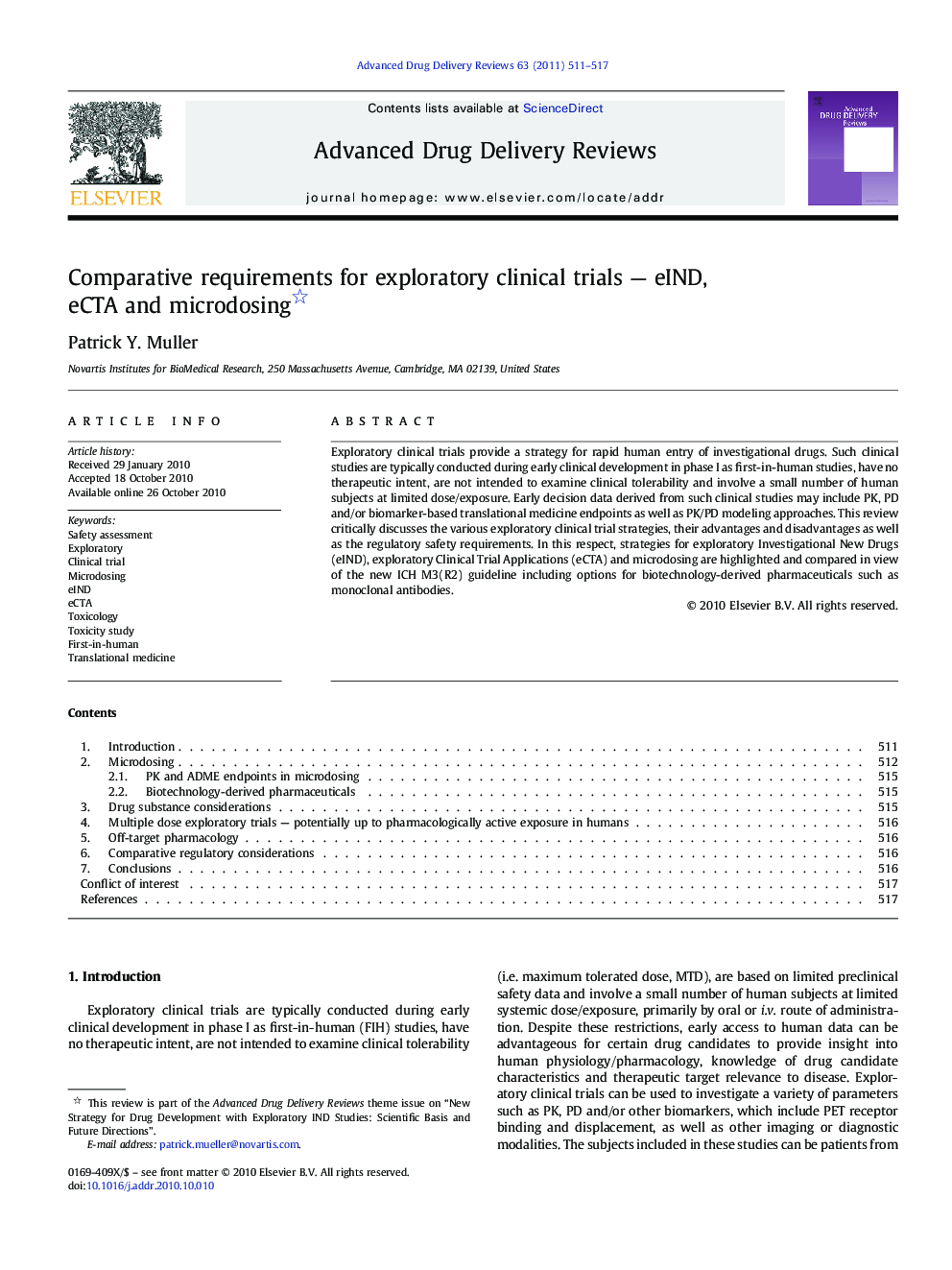| Article ID | Journal | Published Year | Pages | File Type |
|---|---|---|---|---|
| 2071200 | Advanced Drug Delivery Reviews | 2011 | 7 Pages |
Exploratory clinical trials provide a strategy for rapid human entry of investigational drugs. Such clinical studies are typically conducted during early clinical development in phase I as first-in-human studies, have no therapeutic intent, are not intended to examine clinical tolerability and involve a small number of human subjects at limited dose/exposure. Early decision data derived from such clinical studies may include PK, PD and/or biomarker-based translational medicine endpoints as well as PK/PD modeling approaches. This review critically discusses the various exploratory clinical trial strategies, their advantages and disadvantages as well as the regulatory safety requirements. In this respect, strategies for exploratory Investigational New Drugs (eIND), exploratory Clinical Trial Applications (eCTA) and microdosing are highlighted and compared in view of the new ICH M3(R2) guideline including options for biotechnology-derived pharmaceuticals such as monoclonal antibodies.
